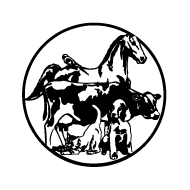Leave the Clippings on the Lawn
Chances are good that you've already revved up the lawnmower this season and have begun cutting your lawn. If you're like countless other amateur landscapers, your mind wanders from topic to topic as you're pushing or riding the mower to and fro.
If you're a horse owner, you've probably asked yourself this question as cut grass shoots from beneath the mower deck: Why can't I rake up these lawn clippings and give the horses a treat? Yours is a familiar question, but what's the best answer?
To answer it properly, you must think about your horse's diet and the decisions you make for him daily as well as the decisions of those whom you trust with his health. If you do this, the answer to your question will quickly become apparent.
For the Sake of Consistency
One of the tenets of feeding management is consistency - both in feed type and times of feeding. The horse's digestive system adapts to a certain diet and does amazingly well on whatever limited menu he is offered daily, be it primarily pasture and a vitamin/mineral supplement or a full-fledged ration intended for an intensely worked athlete. Any abrupt change in the diet can upset the delicacy of the digestive tract, throwing the entire system into chaos and possibly causing colic or founder.
"Feeding lawn clippings will dramatically upset the balance of microbes in the hindgut, potentially leading to colic or laminitis," said Larry Lawrence, Ph.D., a nutritionist with Kentucky Equine Research (KER). "The amount of highly fermentable carbohydrates in regularly clipped lawns is dangerously high. Excessive intake results in a high rate of fermentation in the hindgut. Accelerated hindgut fermentation can produce increased amounts of volatile fatty acids, which, as their name implies, are quite acidic," continued Lawrence.
"In addition to volatile fatty acids, a surplus of lactic acid will be produced. Lactic acid is not utilized or absorbed well in the hindgut. This increased concentration of acids brings about a condition called acidosis that lowers the pH of the hindgut. The acidic environment created by fermentation of grass clippings in the hindgut causes microbes to die, releasing into the bloodstream endotoxins that can cause laminitis," said Lawrence.
Problems Too Risky to Chance
Another aspect often overlooked by well-meaning horse owners is how lawn clippings will affect individual horses with certain quirks or conditions. When a horse grazes, he must go through the motions of selecting, ripping, and thoroughly chewing grass. When a pile of lawn clippings is placed in front of him, the horse can consume the cut grass much more quickly than if he were grazing naturally.
If your horse has a tendency to bolt his feed (eat it very quickly), he may do the same with lawn clippings. When insufficiently chewed and gulped too quickly, a bolus of clippings can become lodged in his throat, and a condition called 'choke' may ensue. Choke is serious and usually requires the intervention of a veterinarian for resolution.
Lawn clippings might be thoroughly unsuitable for a horse that suffers from a pulmonary disease such as heaves. Dry clippings can be dusty, triggering a reaction that leads to respiratory distress. Reactions may be severe enough to warrant veterinary attention or a break from regular work.
On the opposite end of the spectrum, damp clippings could provide the perfect environment for mould and bacterial growth. Consumption of mouldy grass could cause colic or diarrhoea.
Lawn Grasses vs Pasture Grasses
A final factor worth consideration is chemical exposure. As horse owners, we implicitly trust grain farmers, hay growers, and pasture specialists to make informed choices about the growing conditions for their products, especially when it comes to fertilizers, pesticides, and other chemicals that might be necessary to ensure bountiful crops.
Manufacturers of lawn-care products are probably not as concerned with the effects of such chemicals on horses. Fertilizers and weed-control products intended for lawns might not prove detrimental in small quantities (it's not unusual to see owners hand-grazing their horse in their front yard), but to overload the system with large amounts might indeed be harmful.
The potential problems associated with feeding lawn clippings far outweigh the benefits. Certainly there's nothing wrong with offering your four-legged friend a treat, but it's safest to stick to the usual gustatory delights such as carrots and apples. Without knowing for sure how a horse will react to lawn clippings, it's best to avoid feeding them altogether.
By Kentucky Equine Research - Last updated 16 November 2012
